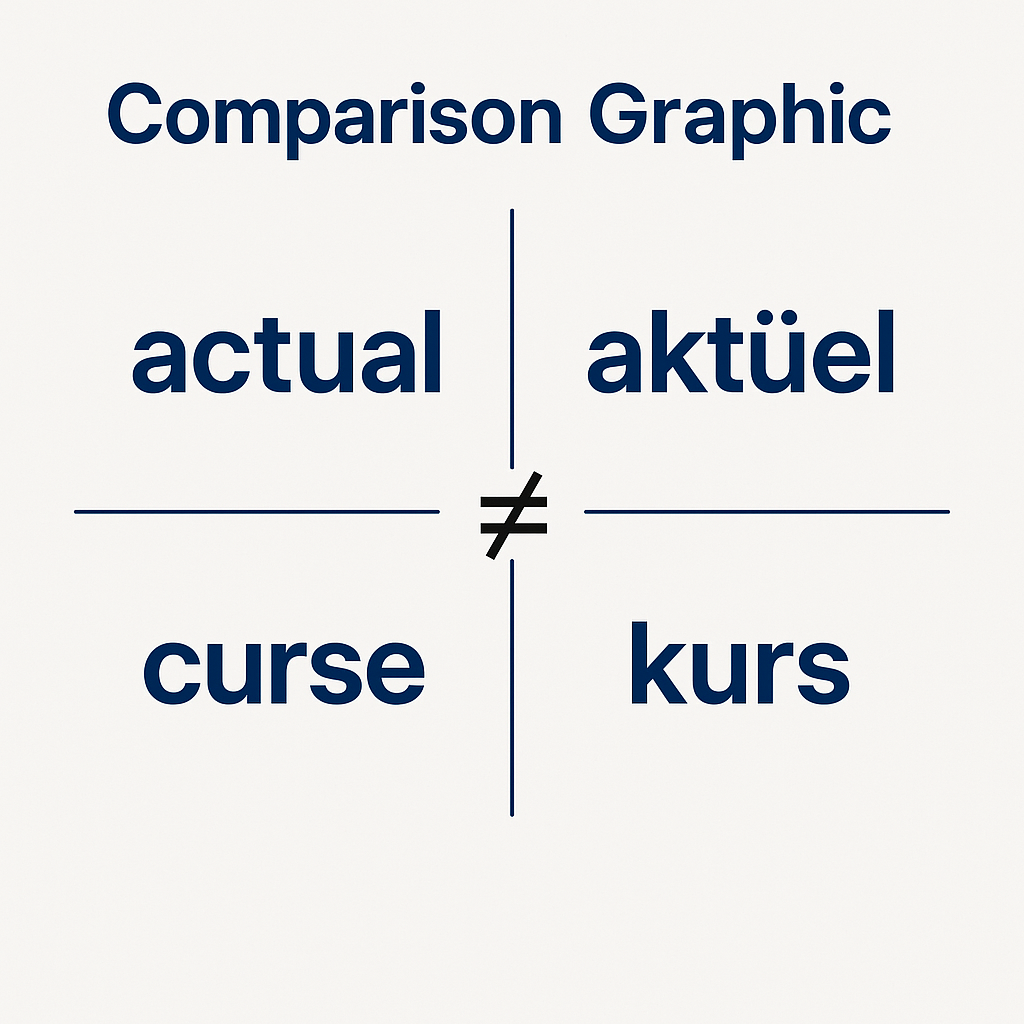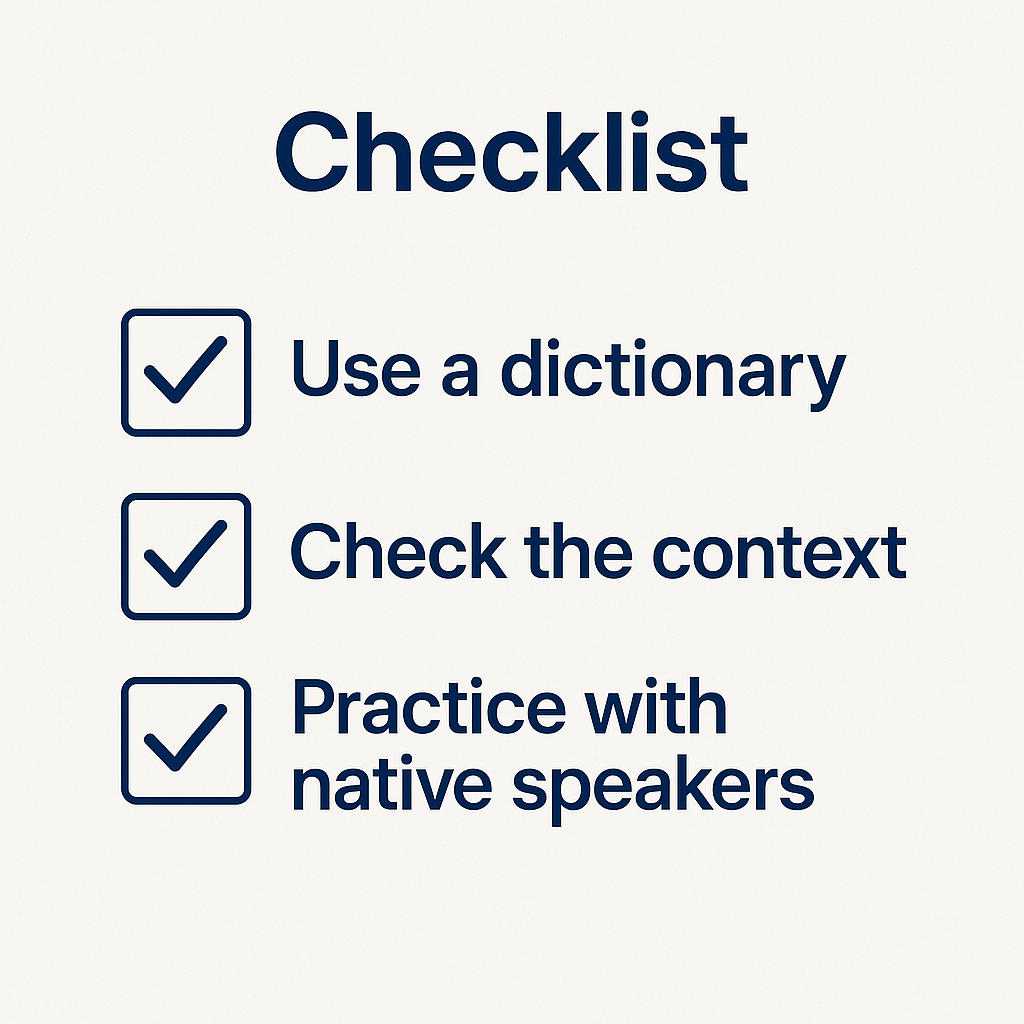Introduction
False friends are the pranksters of bilingual life. They look like friendly helpers offering you the meaning you crave—but then they slap you in the grammar. These are words that sound or appear similar in English and Turkish, but mean something completely different.

If you’re an English learner, Turkish speaker, translator, or educator, you’ve probably run into them. This post will break down what English-Turkish false cognates are, why they’re such saboteurs in translation, and how to avoid falling into their smug little traps. We’ll even drag in a few lesser-known idioms that pair hilariously with these false friends.
What Are False Cognates?
False cognates are words in different languages that look similar but do not share a common meaning. For example:
- “Actual” in English means real or genuine.
- “Aktüel” in Turkish means current or topical.
They sound like long-lost twins, but in practice? They’re as related as a cactus and a couch.
Check out this related guide on simple subject identification to better anchor your grammar understanding.
Common English-Turkish False Friends
Here are 10+ deceivers with clear meanings and usage tips:
| English Word | Turkish Word | English Meaning | Turkish Meaning | Wrong Use | Correct Use |
|---|---|---|---|---|---|
| actual | aktüel | real, genuine | current, topical | “The aktüel price is wrong.” | “The actual cost is high.” = “Gerçek maliyet yüksek.” |
| curse | kurs | spell, insult | course, class | “He attends a curse every Monday.” | “He attends a kurs on Mondays.” |
| fabric | fabrika | cloth material | factory | “This fabrika is soft.” | “The fabric is soft.” = “Kumaş yumuşak.” |
| parent | parent | caregiver | carpet (archaic slang) | “My parent is fluffy.” | “My parent is kind.” = “Ebeveynim iyi.” |
| magazine | magazin | publication | gossip tabloid | “I read a magazin about science.” | “I read a magazine.” = “Bilim dergisi okudum.” |
| patron | patron | customer | boss/owner | “The patron paid the waiter.” (wrong in TR) | “Patron geldi.” = “The boss arrived.” |
| sympathetic | sempatik | understanding | likable/cute | “She is sympathetic about your pain.” = “Acını sempatik buluyor.” (nonsense) | |
| eventually | eventual | finally | incidental | Rare, outdated use in Turkish | |
| library | librari* | book place | misunderstood as kitaplık | Incorrect assumption | |
| parenthesis | parantez | same word, different register | Sometimes misused in informal Turkish |
You can find more on grammar slip-ups in commonly confused words.
Why False Friends Cause Errors
1. False Familiarity
You think you’ve seen them before. That’s their trick. Many learners feel confident recognizing a word, so they speed through—and miss the nuance.
2. Translation by Appearance
Newbies and overworked translators often match words visually instead of semantically. Machine translators are also frequent offenders.
3. Lazy Learning
Some language learning apps gloss over these traps, and don’t explain their real-world risks.
Curious about real-life confusion? Our post on reported speech mistakes captures this chaos well.
Real-World Anecdotes
E-commerce Fail:
- English: “This jacket has an actual leather belt.”
- Turkish translation: “Bu ceket aktüel deri kemer içeriyor.”
- Result: People thought it had a “current events” belt. What even is that?
Corporate Brochure:
- Intended: “Our employees can join leadership courses.”
- Translation: “Liderlik lanetlerine katılabilirler.” (“curse” instead of “kurs”)
- Result: Unintentional dark comedy.
Tips to Avoid False Cognates

Here are ways to not get pranked:
- Use reliable dictionaries (Oxford Learner’s Dictionary, TDK)
- Check context. Don’t just look at the word—check the whole sentence.
- Practice with native speakers. They’ll catch what you miss.
- Review confused words regularly using flashcards.
- Use translation software with memory tools (like SDL Trados or MemoQ).
- Back-translate your work to double-check sense.
- Bookmark error examples to refer back to. Bonus: less shame next time.
Also, you might want to brush up on modal verb confusion as it often overlaps with false friend traps.
Conclusion
English-Turkish false cognates are sneaky, persistent, and occasionally hilarious. Whether you’re dodging “curse/kurs” disasters or trying to use “actual/aktüel” like a pro, it’s essential to treat these words with skepticism and curiosity.
Keep dictionaries close, consult native speakers, and explore the links we’ve sprinkled throughout this post—like this guide on simple English sentences.
Have you ever mistranslated a word because it looked familiar? Share your story below! Or explore more grammar tools and paraphrasing tips.
